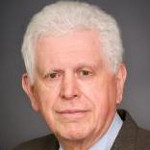On-Demand: Law Firm Process Improvement Workshop
CRE8 Independent Consultants presents a free on-demand workshop on law firm process improvement, offering 20 ideas in 20 minutes.
Today, to attract and maintain clients, law firms are being asked to lower fees through discounted rates, alternative fee arrangements, fixed fee through the life of the matter, and to follow client guidelines that restrict who can bill and what expenses can be charged, the company says on its website. Firms can respond by writing off charges (losing profitability) or by examining their internal processes to determine how to increase efficiency and to improve quality. How should AmLaw 100, and 200 law firm Executive Directors, Chiefs, and Partners respond to these challenges? Education is the first step.
This workshop in 20 minutes discusses:
- what are the internal, and external signs a law firm needs process improvement,
- over twenty different areas within a firm that can benefit from process improvement,
- how a firm can use procedural changes (non-technology) to reduce costs, mistakes, communication issues, and re-work; while improving quality and client service,
- why process improvement is important before installing a new computer system,
- process improvement methods for law firms,
- a five-step process improvement method to improve a law firm,
- how to engage professional and administrative staff to participate in, and support the successful roll-out of process changes, and
- how to create a culture within the firm to sustain on-going process improvement.
Sign up for the on-demand workshop.






